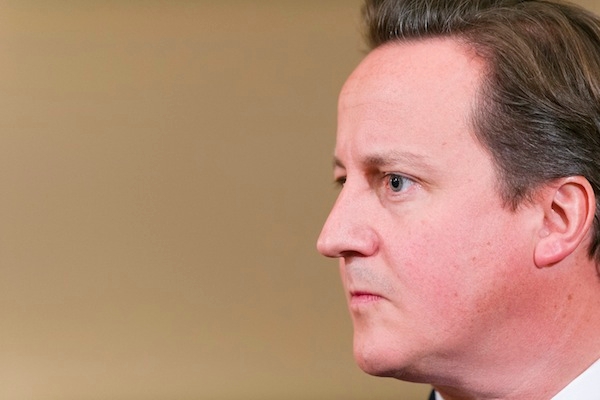David Cameron is using his Middle East tour to remind Gulf States about the tremendous threat Iran’s nuclear ambitions pose to the region. This was something he touched on yesterday in Abu Dhabi during a questions and answers session with students, but expect it to form a very substantial part of his discussions with the Saudis today.
After the Israelis, no one is more perturbed by the idea of Iranian nuclear arsenal than Saudi Arabia. The House of Saud worries about Iranian influence expanding into the Gulf and is unlikely to watch such a development with passivity. Rather than develop their own, the Saudis will simply buy one from Pakistan sparking a nuclear arms race in the region. Qatar and Egypt will quickly develop their own programmes.
But one need not only fear nuclear proliferation to understand the threat posed by Iran. Its current leader, Mahmoud Ahmadinejad, has frequently threatened to ‘annihilate’ his opponents – most notably, the Israelis.
That is no idle threat. The Tehran’s malign influence has been felt for years in the Middle East where it has sponsored the deaths of countless lives by supporting both Hamas and Hezbollah. More recently, Ahmadinejad has also been providing a vital lifeline to Assad’s regime. This has included the supply of men, money, and munitions, all of which have been deployed to deadly effect in civilian areas.
Similar trouble might yet spread to Iran. Protesters who took to the streets in 2009 to challenge Ahmadinejad’s dubious re-election were brutally repressed at the time. As sanctions squeeze Tehran’s traders, discontent is growing once again.
In Syria, Western leaders have been gripped by the fear that Assad could use his chemical arsenal if the country continues to implode. It doesn’t take a great leap of the imagination, then, to consider what might unfurl in Iran if the regime suddenly found itself confronted by a popular uprising.
After the West’s misadventures in Iraq there is a undercurrent of mistrust in the region stifling all constructive debate about how to counter Iran. Cameron’s remarks in Abu Dhabi were aimed at reminding his audience this issue should be as much of an Arab concern (if not more so) than a Western one. The unspoken corollary is that perhaps they should do more about it.






Comments